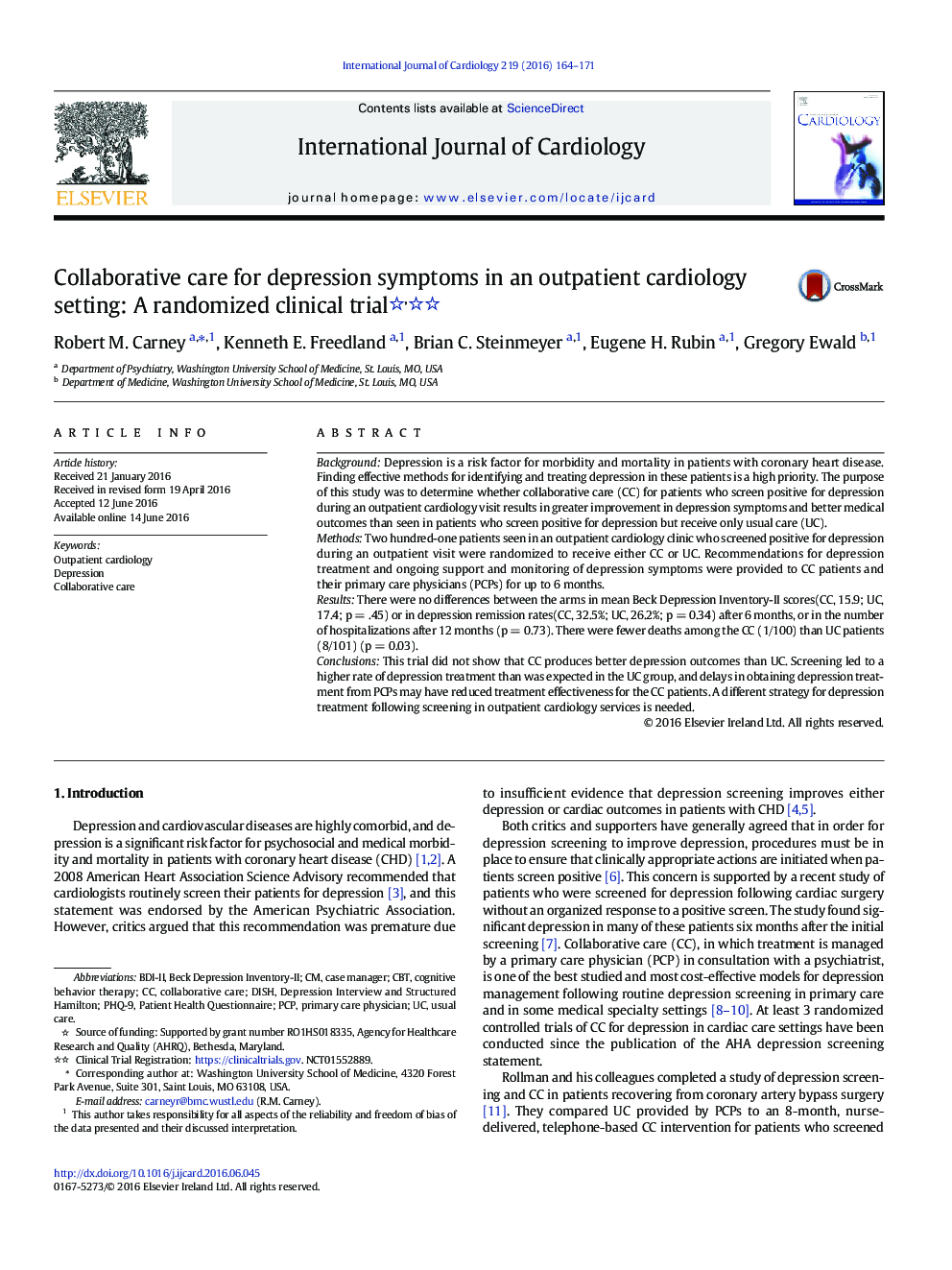| Article ID | Journal | Published Year | Pages | File Type |
|---|---|---|---|---|
| 5963647 | International Journal of Cardiology | 2016 | 8 Pages |
BackgroundDepression is a risk factor for morbidity and mortality in patients with coronary heart disease. Finding effective methods for identifying and treating depression in these patients is a high priority. The purpose of this study was to determine whether collaborative care (CC) for patients who screen positive for depression during an outpatient cardiology visit results in greater improvement in depression symptoms and better medical outcomes than seen in patients who screen positive for depression but receive only usual care (UC).MethodsTwo hundred-one patients seen in an outpatient cardiology clinic who screened positive for depression during an outpatient visit were randomized to receive either CC or UC. Recommendations for depression treatment and ongoing support and monitoring of depression symptoms were provided to CC patients and their primary care physicians (PCPs) for up to 6 months.ResultsThere were no differences between the arms in mean Beck Depression Inventory-II scores(CC, 15.9; UC, 17.4; p = .45) or in depression remission rates(CC, 32.5%; UC, 26.2%; p = 0.34) after 6 months, or in the number of hospitalizations after 12 months (p = 0.73). There were fewer deaths among the CC (1/100) than UC patients (8/101) (p = 0.03).ConclusionsThis trial did not show that CC produces better depression outcomes than UC. Screening led to a higher rate of depression treatment than was expected in the UC group, and delays in obtaining depression treatment from PCPs may have reduced treatment effectiveness for the CC patients. A different strategy for depression treatment following screening in outpatient cardiology services is needed.
